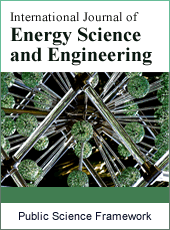International Journal of Energy Science and Engineering
Articles Information
International Journal of Energy Science and Engineering, Vol.1, No.3, Jul. 2015, Pub. Date: Jun. 10, 2015
Inherent Characteristics of Libyan Construction Industry Managers
Pages: 85-90 Views: 4630 Downloads: 1471
[01]
Salahaldein Alsadey, Faculty of Engineering, Civil Engineering Department, Azzaytuna University, Beni Walid City, Libya.
The purpose of this paper is to examine effective managers’ Libyan construction industry. Every construction company, big or small, needs managers for the success of the projects they execute. The need for an improved manager skill in the construction industry is gaining recognition as an important issue and has recently attracted considerable attention. Managing project managers on any project requires good personal and professional needs. Therefore, manager skills become an important part in construction management because these have very important effects on performance. This paper uses quantitative approaches to examine the effectiveness of manager and its needs for the management of construction projects in the Libyan construction industry. The main objectives of this paper are to identify the needs of manager in the Libyan construction companies, and to investigate and suggest the necessary strategies required for construction manager in the Libyan construction companies. A postal questionnaire survey was administered to 150 managers in selected organizations and companies located in the eastern part of Libya between February and March 2014. Of the 150 questionnaires, only 138 were returned and analyzed, yielding a response rate of 92 percent. Data were analyzed statistically using the Statistical Package for Social Sciences (SPSS) software program (v. 15). Based on the results, this study confirmed that a manager with specific personal and professional needs will achieve effective management; as such, managers should put effort into acquiring these needs to discharge their responsibilities and tasks effectively. More specifically, it was found that the managers ranked “concise and rational” as the number one factor (RII=0.875) for arranging top priorities, with “Adherence to law/legality” ranked as the second personnel needs factors (RII=0.863). Meanwhile, “versatile” was considered as the first professional needs that the managers should have (RII=0.891), with “self-regulation” ranked as the second need (RII=0.831) as required by the respondents.
Manager Needs, Personal, Professional, Construction Industry, Libya
[01]
Arti J. Jari, Pankaj, P. Bhangale (2013) “To Study Critical Factors Necessary for a Successful Construction Project” International Journal of Innovative Technology and Exploring Engineering (IJITEE). ISSN: 2278-3075, Volume-2, Issue-5, April 2013.
[02]
Ashley, David B., Clive S. Lurie, and Edward J. Jaselskis. (1987). “Determinants of Construction Project Success.” Project Management Journal, Volume XVIII(2), 35- 45.
[03]
Murphy, David C., Bruce N. Baker, and Dalmar Fisher. (1974).“Determinants of Project Success”. Springfield, VA: National Technical Information Services, September 15.
[04]
Griffith, Andrew F., Edward Gibson Jr., Michele R. Hamilton, Aniello L. Tortora, and Charles T. Wilson. (1999). “Project Success Index For Capital Facility Construction Projects.” Journal of Performance Constructed Facilities, Volume 13(1), 39-45.
[05]
Kluenker, Charles H. (1996). “The Construction Manager as Project Integrator.” Journal of Management in Engineering, March/April, 17-20.
[06]
Chan, Albert P.C., David Scott, and Ada P.L. Chan. (2004). “Factors Affecting the Success of a Construction Project.” Journal of Construction Engineering and Management, Vol. 130(1), 153-155.
[07]
Taneja,S. January-june (2011). Critical Success Factors And Success Criteria of Project Management. In : “bi-annual Of IMS Ghaziabad” Vol 8 No.1,pp.13-23
[08]
Ganesh, L. and Mehta A. (2010).Critical Success Factors For Successful enterprise Resource Planning Implementation. In : “International Journal Of Business, Management And Social Sciences” , Vol. 1 No.1, pp. 65-78.
[09]
Cooper, R., Schindler, S., 2005. Business Research Methods, ninth ed. McGraw-Hill, Boston.
[10]
Kometa, S.T., Olomolaiye, P.O., and Harris, F.C. (1994). Attributes of UK construction clients influencing project consultants’ performance. Construction Management and Economics, 12, 433–43.
[11]
Lim, E.C., & Alum, J., (1995). Construction productivity: issues encountered by contractors in Singapore. International Journal of Project Management, 13 (1), 51–58.
[12]
Kothari, C.R. (1990). Research Methodology: Methods and Techniques. 2nd edition, New Age International Publishers, India.
[13]
Sekaran, U. (2006). Research methods for business: A skill building approach. New York: John Wiley & Sons, Inc.
[14]
Norusis, M.J. (1993), SPSS for Windows: Base System User’s Guide Release 6.0, SPSS Inc., Chicago, IL.
[15]
Norusis, M.J. (1994), SPSS Professional Statistics 6.1, SPSS Inc., Chicago, IL.

ISSN Print: 2381-7267
ISSN Online: 2381-7275
Current Issue:
Vol. 5, Issue 1, March Submit a Manuscript Join Editorial Board Join Reviewer Team
ISSN Online: 2381-7275
Current Issue:
Vol. 5, Issue 1, March Submit a Manuscript Join Editorial Board Join Reviewer Team
| About This Journal |
| All Issues |
| Open Access |
| Indexing |
| Payment Information |
| Author Guidelines |
| Review Process |
| Publication Ethics |
| Editorial Board |
| Peer Reviewers |


